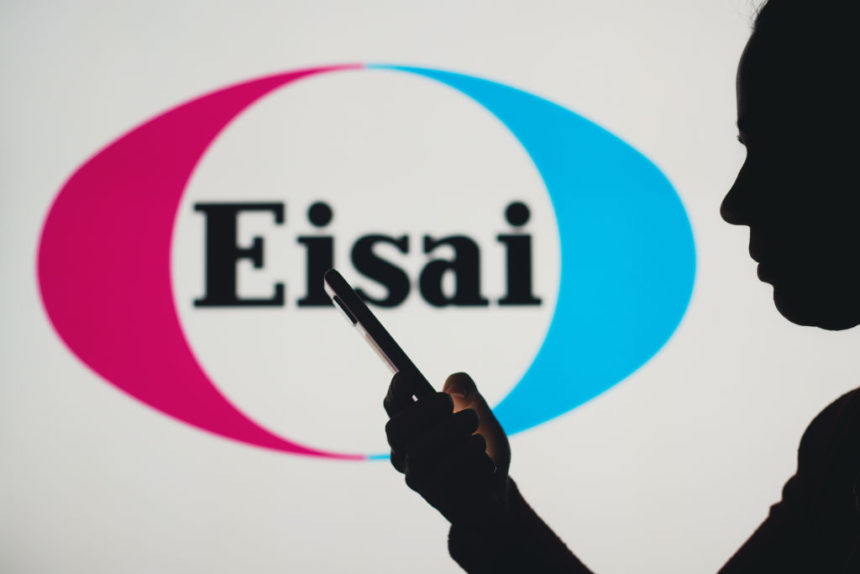Eisai submitted a marketing authorization application for Leqembi, the Alzheimer’s drug jointly developed with Biogen, to the European Medicines Agency, the company announced late Tuesday afternoon.
The Tokyo-based pharma company said the application is based on the results of its Phase III CLARITY AD study and Phase IIb clinical study of the drug. Leqembi was generally well-tolerated and met its primary endpoint in slowing the cognitive decline of some patients with mild Alzheimer’s disease.
Last Friday, the Food and Drug Administration granted accelerated approval for Leqembi and Eisai said in a statement that the launch price for the drug will be $26,500 per year.
Eisai is the lead on the development of Leqembi, regulatory submissions and has final decision-making authority, though both companies are co-commercializing and co-promoting the product.
The widely-followed Alzheimer’s drug was one of the stars at the recent J.P. Morgan Healthcare Conference, where new Biogen CEO Christopher Viehbacher discussed its potential to benefit patients and caregivers as well as the lessons learned from the Aduhelm debacle of 2020-2021.
Viehbacher said in a fireside chat on the first day of the conference that the company is contributing to the marketing of the drug and planning additional clinical studies to bolster its Alzheimer’s pipeline in general.
As it relates to marketing Leqembi, Viehbacher said Biogen is challenged to explain the benefits of the drug to patients in an effective manner. This includes underscoring the severity of an Alzheimer’s diagnosis beyond the preconceptions of it as simple memory loss and instead reframing it as “fatal, progressive disease.”
“What I look at from more of a commercial point of view is the activities of daily living,” he said. “[Leqembi] had a 37% improvement in that.”
Aduhelm gives Biogen and Eisai a marketing strategy, mostly on what not to do, for rolling out a promising Alzheimer’s drug.
A recent congressional report detailed various missteps in the company’s proposed marketing plans for the controversial drug, including an overly broad marketing playbook.
From a financial perspective, Biogen planned to spend more than $3.3 billion on sales and marketing for the drug from 2020 to 2024. This was more than two-and-a-half-times what the company spent developing a drug whose efficacy and safety came under severe criticism despite its approval from the FDA in June 2021.
Another part of the marketing plan involved direct outreach to key stakeholders like patients, providers and advocacy groups, among others. The forecast for spending on this endeavor ranged from $500 to $600 million, with a particular focus on targeting physicians.
Biogen’s Aduhelm marketing plan also targeted communities of color but its clinical trials included very few non-white participants.
Ultimately, this was all for naught, as Biogen announced in May that it would cease its promotional efforts and shutter the commercial infrastructure for Aduhelm, while shedding their then-CEO Michel Vounatsos in the process.







